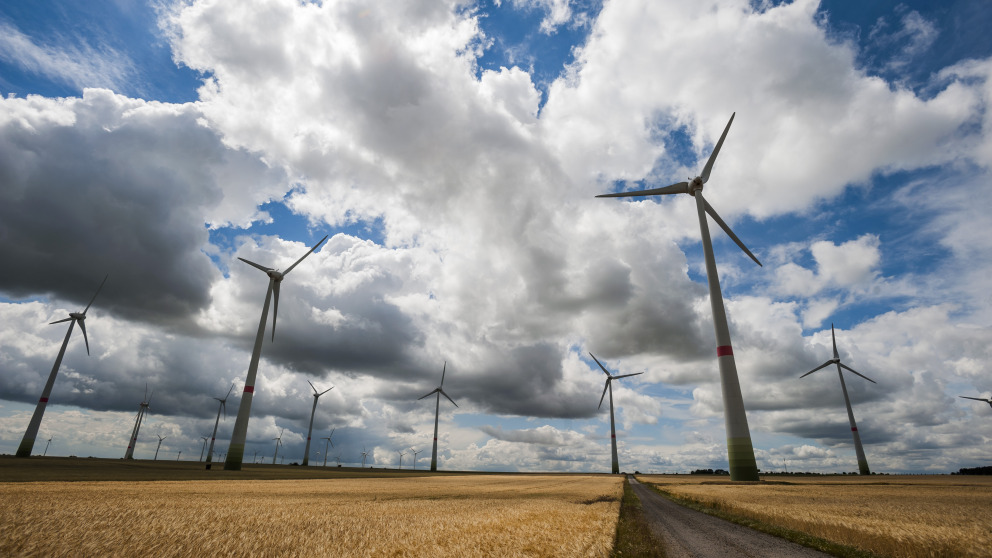Headline:
Creating a Sustainable Energy Transition: IASS to Lead Kopernikus Research Project

The IASS has won the tender for one of four Kopernikus research projects in the largest research initiative for the energy transition launched by the Federal Ministry of Education and Research (BMBF) to date. The Institute is to lead the ENavi project in the thematic field of “System Integration”, which aims to ensure that the energy transition is sustainable in its social, ecological and economic dimensions. The research consortium brings together 64 partners. Up to € 100 million in funding has been earmarked for ENavi, which will run for ten years.
Federal Minister of Education and Research Johanna Wanka announced the winners of the research initiative on Tuesday, including three other projects with a technical focus. In total, four research consortia have been chosen to carry out research aimed at laying the strategic foundations for a successful energy transition. Led by the new scientific director at the IASS, Ortwin Renn, the ENavi consortium won out over a large field of competitors with its application to carry out a systemic analysis of the energy supply and will also establish knowledge interfaces with the other three projects.
The federal government’s call for tenders focussed on four research fields: three of these addressed the development of primarily technical solutions at the systems level for a sustainable energy supply, while the fourth (ENavi) focuses on the systemic links between technology, the reliable and economically viable supply of energy, new business models, socially responsible systems, and the energy-relevant behaviour of bulk and small-scale consumers. “Our aim”, explained ENavi spokesperson Ortwin Renn, “is to better understand the highly complex energy supply system and – building on this – to generate possible solutions for an energy system that is dependable and socially acceptable and equitable, and which will lend momentum to developments abroad.” To achieve this ambitious goal, the IASS has joined forces with a broad range of science institutes and secured the cooperation of organisations from civil society and relevant actors from the business sector.
The centrepiece of the research plan is the development of a navigational instrument that will assist researchers in anticipating and evaluating the potential impacts and side-effects of economic and political measures. The instrument will help to answer pressing questions such as: How can we ensure that the energy transition does not place an undue burden on low income households in Germany? What measures are suitable to promote electromobility effectively and efficiently in Germany? Or: How can we synchronize the supply of power from tens of thousands of domestic suppliers generating energy with rooftop solar arrays?
Transdisciplinary research is the key
According to the researchers collaborating in the ENavi consortium, the energy transition will only be a success if the following conditions are fulfilled: 1) technology must be appropriate to the aims and rolled out in a timely fashion; 2) key decisions relating to the transition must be economically viable and 3) ecologically sustainable; 4) all measures must be effectively coordinated and organized at the political and economic level; 5) interventions in the energy system must be designed in cooperation with various societal actors and their impacts must be acceptable to those affected and seen as fair and socially responsible; 6) projects should be steered by legal guidelines that promote and incentivise innovation; in addition to this, 7) interventions must be of an ethically sound nature, i.e. they should reflect the values of equity and fairness.
The research project pursues the following objectives: to gain a better and deeper understanding of the complex energy system and, on the basis of these insights; to highlight actionable options that are informed by science and that would facilitate the systemic integration of the various components of a future energy system while achieving the objectives of energy policy (climate and environmental compatibility, cost efficiency, energy security); and to ascertain as precisely as possible the likely impacts on the energy supply over the short, medium and long term of individual measures (interventions) undertaken within this context; and finally, to identify options and pathways to effect broad societal change in a transdisciplinary dialogue.
The transdisciplinary research approach seeks to generate knowledge and weigh available options in dialogue with representatives from the economy, the political sphere, and civil society. The dialogue will facilitate the constructive integration and scientific consideration of suggestions, ideas, and requests from the political sphere, the economy and civil society while also providing a forum for debate and critical reflection on the project’s research findings which includes representatives from the economy, policy-makers and civil society actors within its scope. The transdisciplinary dialogue will be held under the leadership of the IASS.
